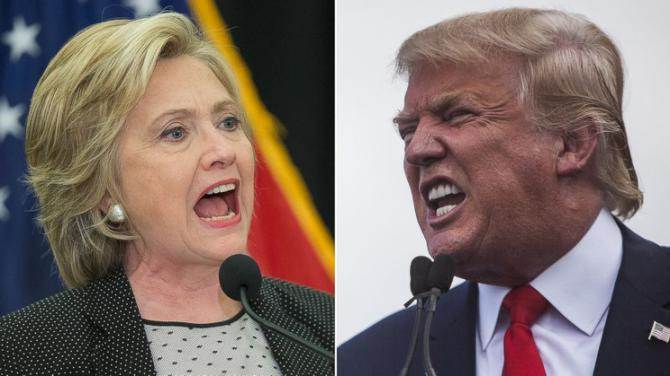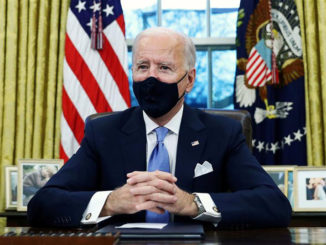
“Regrettably, no policy lessons were drawn by New Delhi from the Mumbai terrorist siege, which occurred because India presented itself as a weak and tempting target. The latest episode â ” one of the worst acts of Pakistani savagery in peacetime ever â ” has followed a dozen Pakistani violations of the line of control in the past one month. The question to ask is what has prompted the Pakistani military establishment to adopt an overtly aggressive posture visa-vis India of late”, says the author.
Words like “brutal”, “heinous” and “savage” aptly describe the way a Pakistani army unit raided Indian territory and chopped two soldiers, taking away one severed head as a “trophy”. The Indian outrage, however, must not blind us to the unpalatable truth: India is reaping what it sowed. New Delhi is staring at the bitter harvest of a decade-long policy seeking to appease a recalcitrant neighbor with unilateral concessions and gestures. The “peace-at-any-price diplomacy” was started by prime minister Atal Behari Vajpayee in an abrupt policy U-turn in 2003, and has been pursued with greater vigor by his successor, Manmohan Singh, interrupted only by the Pakistan-orchestrated Mumbai terrorist rampage of 2008.
Regrettably, no policy lessons were drawn by New Delhi from the Mumbai terrorist siege, which occurred because India presented itself as a weak and tempting target. The latest episode, one of the worst acts of Pakistani savagery in peacetime ever, has followed a dozen Pakistani violations of the line of control in the past one month. The question to ask is what has prompted the Pakistani military establishment to adopt an overtly aggressive posture visa-vis India of late. The Pakistani military is drawing encouragement from two factors. The first factor is that the US-Pakistan relationship, after being on the boil for more than a year, has gradually returned to normalcy. That the USPakistan rift has healed is apparent from Washington’s resumption of large-scale military aid and its coddling of the Pakistan army and ISI.
US aid to Pakistan is now at a historic high â ” at more than $3 billion a year. US policy, because of the exigencies of an exit strategy from Afghanistan, has permitted political expediency to trump long-term interests vis-a-vis Pakistan. The US has allowed even a key issue to fade away: how was Osama bin Laden able to hide deep inside Pakistan? The reason for that is the same as to why the US didn’t pursue the AQ Khan case. The second factor is the series of unilateral political concessions by India, including delinking dialogue from terrorism, and recognizing Pakistan, the sponsor of terror, as a victim of terror. Whereas US policy has increased the Pakistani military’s room for maneuver against India, Indian policy has both solidified Pakistani reluctance to bring the Mumbai-attack masterminds to justice and emboldened the Pakistani military to commit yet another act of aggression.
India has considerably eased pressure on Pakistan, both on the Mumbai-attack issue and on Hafiz Saeed, the militant leader who still preaches terrorism against India. India has also pursued a host of goodwill gestures, including resuming high-level political exchanges and cricketing ties and introducing a lessrestricted visa regime for Pakistanis. All these moves, unfortunately, have sent the wrong message to Islamabad. Being nice with a determined adversary in the hope that this will change its behavior is not strategy. With Singh dreaming of open borders with terror-exporting Pakistan, India’s Pakistan policy remains driven by hopes and gushy expectations, not statecraft.
In fact, some of the public statements Singh has made in recent years have not only been insensitive in relation to those slain by Pakistantrained terrorists but may also have inadvertently encouraged Pakistani intransigence and aggression. Consider the following examples: “We both [Pakistani Prime Minister Gilani and myself] recognize that if there is another attack like Mumbai, it will be a setback to the normalization of relations”. In other words, if there were another Mumbai style terrorist attack, it will merely be a “setback” to ties â ” that, too, a temporary setback followed by Indian concessions. “India-Pakistan relations are prone to accidents.”
Were the attacks on the Indian Parliament and Red Fort, the Mumbai terrorist strikes, and the myriad other Pakistan-scripted outrages just “accidents”? Will the latest savagery also be treated as another “accident” after the current public indignation fades? “We cannot wish away the fact that Pakistan is our neighbor”. And, therefore, “a stable, peaceful and prosperous Pakistan” is in India’s “own interest”. But the breaking away of South Sudan, East Timor, and Eritrea and the disintegration of the Soviet Union and Yugoslavia since the 1990s have shown that political maps are not carved in stone.
In fact, the most profound global events in recent history have been the fragmentation of several countries. Didn’t Indira Gandhi change political geography in 1971? India and Pakistan are locked by a “shared destiny”, and thus “our objective must be a permanent peace with Pakistan, where we are bound together by a shared future and a common prosperity”. How can a plural, inclusive and democratic India share a common destiny with a theocratic, militarized, fundamentalist and failing Pakistan?





Be the first to comment